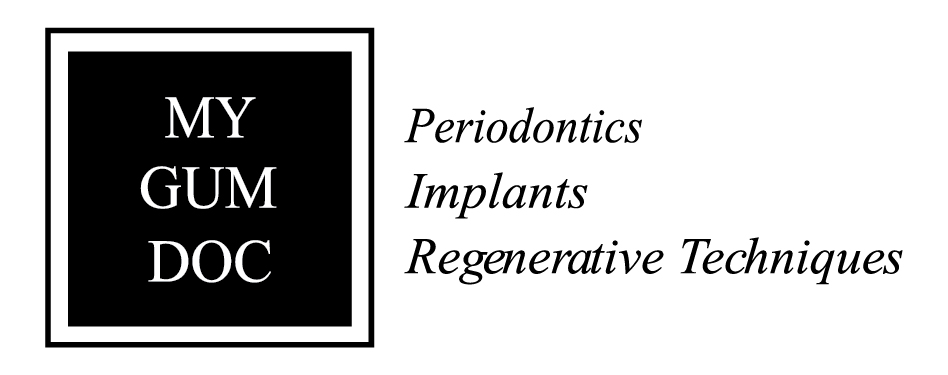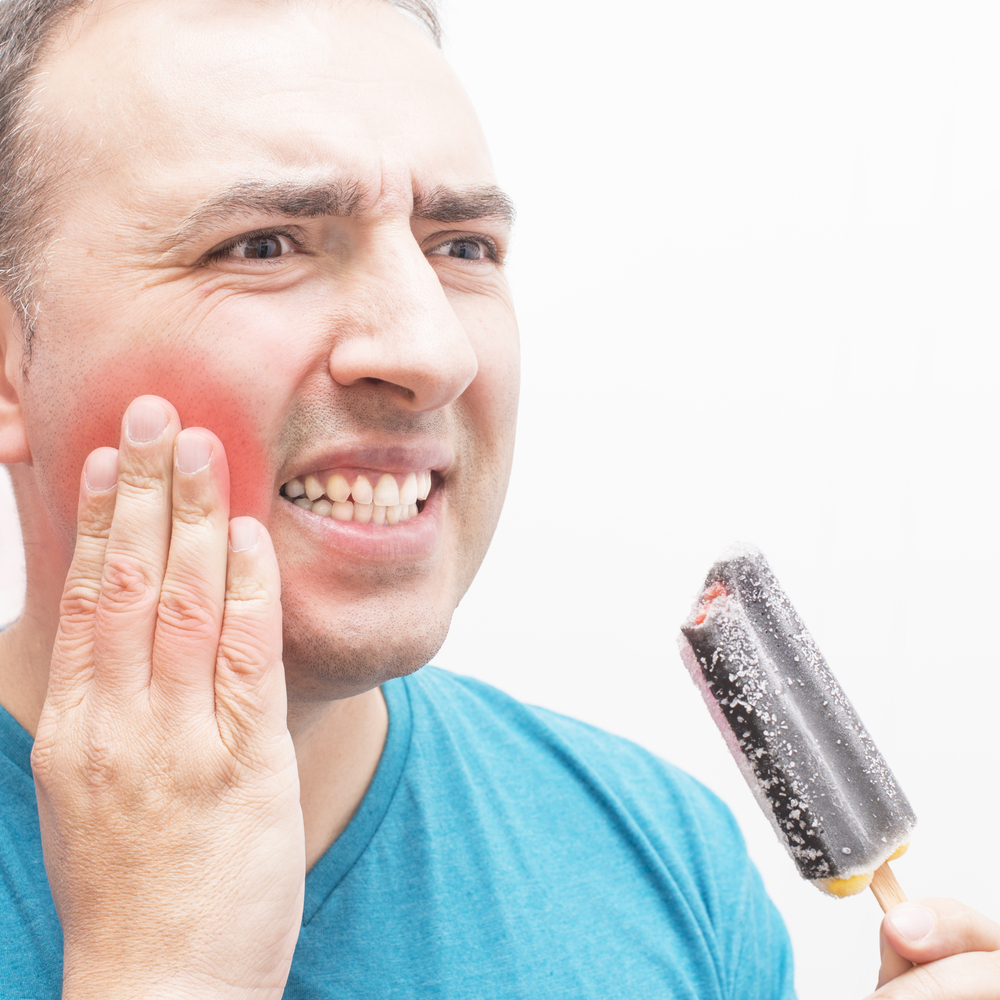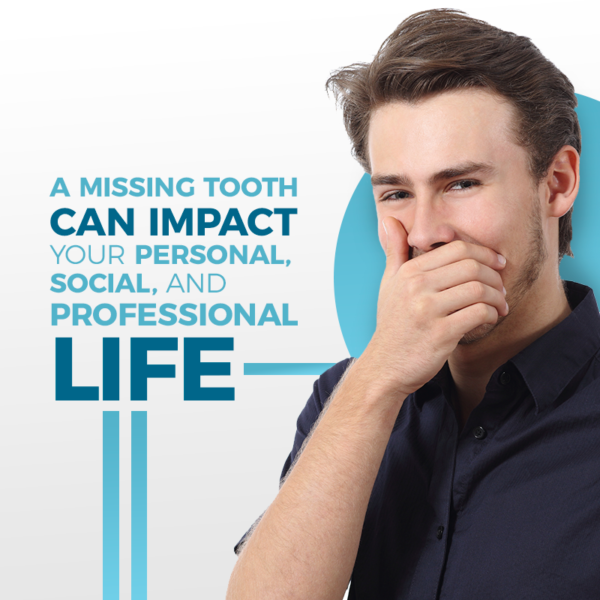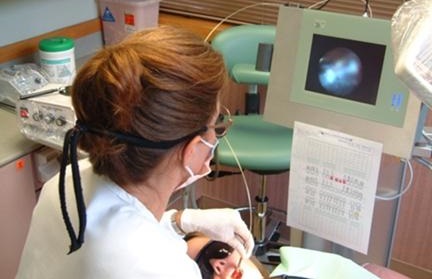Tooth sensitivity is technically dentin hypersensitivity or root sensitivity. If hot, cold, sweet or very acidic foods and drinks, or breathing in cold air, makes your teeth or a tooth sensitive or painful then you have dentin hypersensitivity. Often the direct source of this sensitivity is an exposed root. For this blog’s purpose, we will be discussing the exposed root scenario. All exposed roots are not sensitive. Some folks have exquisitely sensitive roots and others may have no pain at all. Sometimes, a person can have just one or a few sensitive exposed roots and than other exposed roots in their mouth have no sensitivity. Also, in our experience, sometimes the source of this pain can vary–for some it may be only cold, or touching with a toothbrush, or sugar. A person can have a single cause or many of these causes. It is very common and also can come and go over the years. The good news is that in most cases with a good examination by a periodontist, root sensitivity can be diagnosed and improved with a few options.
Why Is It Painful?
The root does not have that hard layer of enamel like the crown portion of your teeth. Instead the roots have a very soft covering called cementum, which once lost leaves the dentin of the root exposed. Dentin contains thousands of tiny channels or tubules that are only visible with a microscope. These channels run from the outside of the root, through the dentin to the center or pulp chamber of the tooth, where the nerve center is located. These tiny tubules contain fluid and went touched by a stimulus, such as cold, sugar, acidic food to name a few, the fluid moves and irritates the nerves in the tooth, causing pain that you feel.
Causes of Root Sensitivity and/or Exposed Roots
- Highly acidic diet
- Over zealous brushing or abrasive toothpastes
- Teeth bleaching/whitening
- Gum recession
- Periodontal disease
- Clenching or grinding of the teeth
- GERD or bulimia
Can Root Sensitivity Be Treated or Improved?
Frequently, root sensitivity can be treated or at least improved. The treatment of course depends on the cause. The first few causes on the list above can be improved at home with simple suggestions. If your diet contains a lot of acid, limit the amount of these foods such as citric acids (lemon, lime, tomato), soda pop drinks, and sugar to name a few. Brushing too hard or using a harder bristle tooth brush can be the source and if this is the case, you should ensure you are using a soft toothbrush or even an extra soft brush. Extra soft brushes often have the wording “for sensitive teeth” on the packaging. Limiting the amount of teeth bleaching can be helpful and avoid any toothpaste or mouth wash that says it is “whitening”. Often these contain a peroxide component that increases sensitivity. A toothpaste that contains potassium nitrate can be very helpful–it is easily available in any drug or grocery store. Check on the back of the packaging under active ingredients and it should be listed as the first ingredient, usually a 5% formulation. This sensitivity toothpaste needs to be used daily and used for at least 3-4 weeks consistently to judge as to whether it is helpful.
The remaining causes on the list above would be best observed and diagnosed by a health professional. A periodontist is uniquely suited to evaluate your gums for recession or periodontal disease. Both of these conditions can contribute to root sensitivity by exposing the roots. Periodontal disease is an infection of the gums whereas receding gums is often more a foundational deficit of adequate or thick gums. Both of these conditions have different treatment recommendations. Particularly with gum recession, a rather successful and longer-lasting solution can be a gum graft. Gum grafting can add tissue back to the exposed root, thus covering the tubules or channels that the pain is transmitted through. Seeing a periodontist can be very helpful with this procedure as they are uniquely suited and experienced with this treatment being that they are the oral foundation experts. WebMD offers a nice summary on gum grafting as well as periodontal websites. Periodontists can also offer other chemical agents to reduce sensitivity such as in-office desensitizing treatments or prescribe stronger fluorides which have shown to be helpful in some cases.
No one should or needs to live with pain caused by root sensitivity. Root sensitivity has more than one cause and more than one direction for treatment. Seeing a periodontist can be quite beneficial in helping you treat and decrease your sensitivity and help you live more comfortably.



 NOT Replacing a Missing Tooth? Reveal the Cost Here!
NOT Replacing a Missing Tooth? Reveal the Cost Here!
